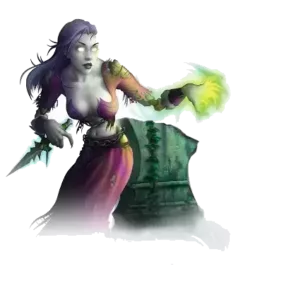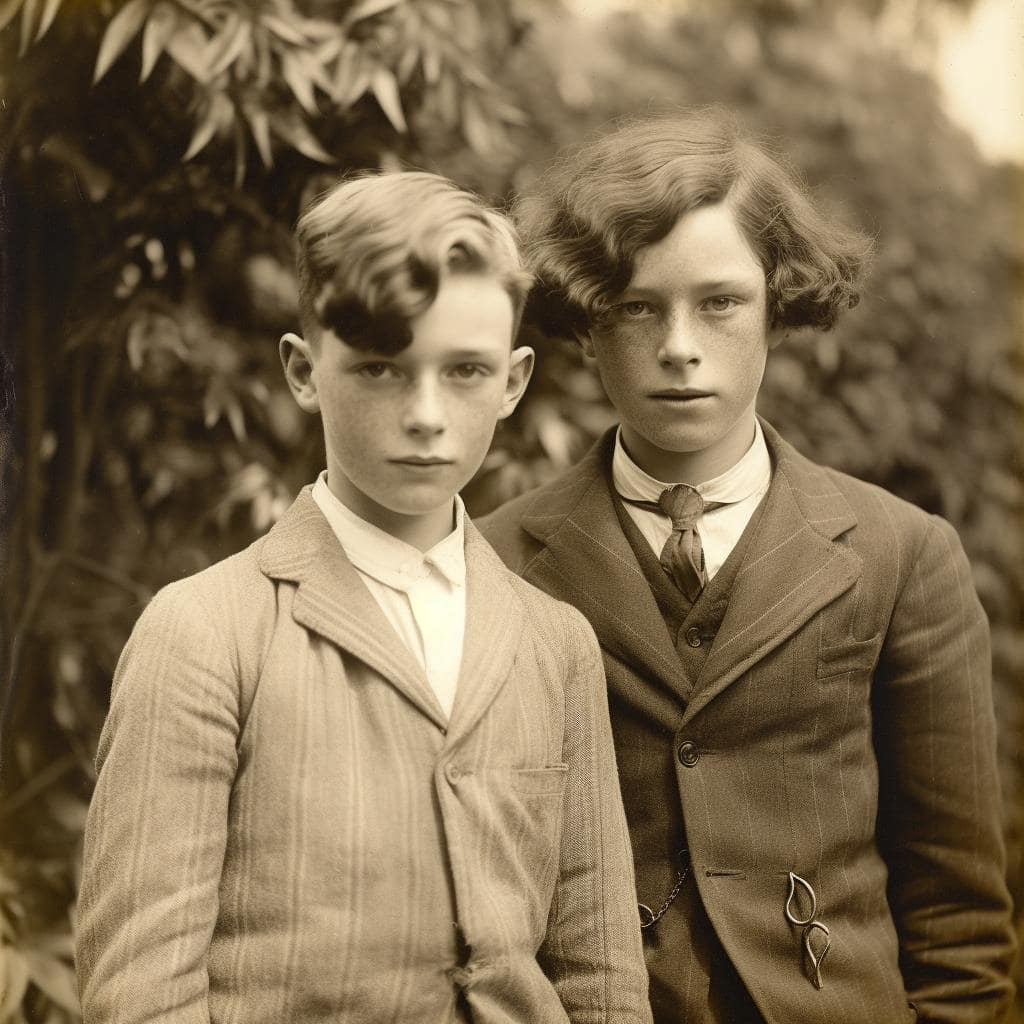
The Scots or the “Scottish People” are the ethnic group of people that live in Scotland, one of the independent kingdoms of the United Kingdom or Great Britain. They are direct ancestors of two of the main Celtic tribes of the British Isles: the Picts and the Gaels, the founders of the Kingdom of Scotland. These Celtic tribes migrated from Northern Ireland and became the dominant tribe in this region. Scotland has existed for quite some time and was counted as an independent state in 1707, effectively becoming part of the United Kingdom. But the Scottish people have existed way back to 300 A.D. and have enjoyed a lot of transition and improvement in their Gaelic culture, including their unique ideas and approach to creating names.
In this article, you’ll get to know more about the Scottish name traditions, their legacy in the names of the world, and some examples of Male and Female Scottish names. Not only that, but we’ll also add to the bucket some of the awesome traditional Scottish last names so that you get to grasp a full understanding of Scottish naming convention. Without further ado, let’s dive into it!
The United Kingdom as one of the Superpower Countries of the world, has shared its influences, both good and bad, to the world when they conquered other countries for colonization and resources. The Thirteen States of the United States, for example, are all British colonies and have influences of the British culture, and most likely share Scottish culture. Although there were independent attempts of the Kingdom of Scotland to colonize some parts of the Americas, most conquests were a joint effort with the rest of the United Kingdom. The Easy Jersey founded in 1683 is a settlement colony granted and governed specifically by the Scottish after the colony of New Jersey was established. With the mixed influence of the British Crown as they expanded to other colonies, so was the Scottish influence being carried and shared with the colonies.
One of the many legacies of Scottish names that exist today is their unique naming convention. In Scotland, first names are more likely called “Forenames”. These forenames come in a variety of variations and might have the same phonetics but different spellings. Also, it is good to note that the “Christened” or born forenames might be different when they get married or die. The following are the influences that change the Scottish names as they are used and passed on.
Scottish people have the tradition of using pet names instead of their forenames. Unlike other cultures who uses nicknames for their close acquaintances, Scottish nicknames can be used for formal documents or name records. On the other hand, abbreviating Scottish names are also common. Names like Margaret can be written as Margt, James can be written as Jas, and Alexander as Alexr.
For some regions that are native Gaelic-speaking, especially on the Highlands of Scotland and the Western Isles, old Gaelic names are converted into “anglicized” Gaelic names, or English versions. A few examples are Mary (Morag in native Gael) and James (Hamish in native Gael).
Sometimes, Scottish names are ambiguous and lack the gender distinction in it. Traditionally, names are accounted with “son of” and “daughter of” as the last name to distinguish who the parents were and the gender of the child. However, there are recorded names that contain “child of”, thus eliminating gender identity. On top of that, there are Scottish boy names that were used as girl names such as Christian. To solve this, some Scottish parents add the suffix “-ina” at the end of any Scottish boy name to convert it into girl names (e.g., Williamina, Jamesmina, Georgina).
Scottish names are also interchangeable with their synonymous version. Examples are Agnes to Nancy, Donald to Daniel, and Jane to Jean. Spellings also play a role in interchangeable names since they are pronounced the same. Examples are Henry and Henrie, Alisone and Alison.

Did you know that Scottish people also have a traditional naming convention for Scottish boy names? The most basic tradition in creating Scottish boy names is following these three simple rules:
This formula in giving names serves as a remembrance to carry over the members of the immediate family and to not forget the family’s ancestors. However, there is a disadvantage to this naming tradition such as duplication of the forenames in cases of more than three sons. Below are examples of traditional Scottish male and boy names that you can use if you are looking for awesome Scottish names.
Scottish Boy Names | Meaning |
Acair (/a-keyr/) | An Old Gaelic term derived from the word accaire which means “anchor”—a perfect Scottish boy name for those who love the sea. |
Bearnard (/ber-nard/) | This name can also be spelled as “Bernard”. It is derived from the word “Bear” and is often used to identify a strong child. |
Boyd (/boyd/) | Derived from the Old Gaelic word “buidhe” which means “yellow”. This Scottish name is often associated with the child’s golden-blonde hair. It is also a common forename and surname in Scotland. |
Brock (/book/) | Brock is based on the Old English term for a badger (“Broc”), although the Proto-Celtic root word is “brokkos”. It is common for Scottish names to use nouns based on animals (such as Bearnard). |
Ranald (/ra-nald/) | This name is an interchangeable name of Ronald which means “Counsel Rule”. This name is the Scottish version of the Old Norse name Ragnvaldr which is comprised of the words regin (advice) and valdr (rule or ruler). |
If you are looking for much older and mature Scottish male names, check out our suggestions below. Take note that Scottish names do not have a distinction between young boy and adult male names. We just separated the two to have a clear view of which is more fitting for a kid and an adult. Both names are likely interchangeable.
Scottish Male Names | Meaning |
Rodrick (/rod-rik/) | Rodrick shares influences from the Old German term Roderich. The name means “famous ruler” or “famous power”, an ideal Scottish and German name for those who show great leadership. |
Danny (/da-nee/) | Danny is a direct diminutive of the name Daniel. Since most of the Scottish people were Christianized in the early medieval period, influences of biblical names also entered their wide list of names. Danny may also be used as a nickname for Daniel since some Scottish use this anglicized version more often. |
Gilbert (/gil-bert/) | This Scottish male name is derived from the Gaelic phrase “Mac Gille Brighde”, which means “Son of the Servant of Brigit”, referring to St. Brigette’s servants. This name is one of the most used Scottish names and has abbreviations such as Gib, Gibby, and Bert. |
Gordon (/gor-don/) | Translates as “space” or “fort”. This name is also a common Scottish name adapted from a Scottish place. The Gordon clan is also one of Scotland’s great clans. |
Irvin (/ir-vin/) | Irvin is an interchangeable name variant of Ervin which means “beautiful”. |

Similar to Scottish boy names, Scottish girl and female names also follow a traditional naming pattern.
However, there is a disadvantage to this naming tradition such as duplication of the female forenames in cases of more than three daughters. Below are examples of traditional Scottish female and girl names today.
Scottish Girl Names | Meaning |
Bonnie (/bow-nee/) | This Scottish girl’s name is an adorable name to identify a sweet and loving daughter. It has influences from the French term bon which means “good”. There are other interchangeable names for Bonnie such as Bonita, Bonny, and Boni. |
Elsie (/el-see/) | This name is a shortened name for Elizabeth. It is also an interchangeable name variation for Elspeth which means “to pledge to God”. The term Elsie made its vintage name counterparts more modernized and easier to remember. |
Callum (/ka-lum/) | Although this Scottish name can be used for boys and girls, it is often given to girls because of its feminine phonetics. It is a charming Scottish name that means “dove” from the Latin Columba. |
Mairi (/may-ri/) | A variant and Scottish-influenced version of Mary. Pick this Scottish girl name for a loving and graceful little daughter. |
Maisie (/mey-see/) | This name may also be spelled Maisy or Mazie. It is a popular Scottish girl name that means “pearl”. Other texts also suggest that Maisie is also a pet name form of the names Mairead and Margaret and simply became a separate independent name in time. |
Scottish Female Names | Meaning |
Ailsa (/ayl-sa/) | This name is directly borrowed from one of the islands of Scotland. Other versions of this name include Aylsa, Aysa, and sometimes linked to Elsa. |
Vanora (/va-no-ra/) | Vanora has its Old Welsh origin that means “white wave” in English. It is a nice and regal Scottish girl name for a very beautiful daughter. |
Fionn (/fi-yon/) | Fionn refers to something that is “white” and “fair” and is often time associated with skin complexion. Its Anglicize version is Fiona while its Old Gaelic root is Fionnghal. |
Lennox (/le-noks/) | This Scottish name is also used as a surname in Scotland. It is a genderless name that refers to “elm grove”—a perfect name for both males and females. |
Eilidh (/ey-lid/) | Eilidh is the Gaelic version of the name Eleanor. It is one of the popular Scottish names for its attractive phonetics. It was introduced to the British Isles by the Normans who invaded the Isles in 1066 A.D. |
Most Scottish surnames are also Patronymic, meaning they follow the given name of the father as the surname of the son or daughter. Perhaps the most iconic tradition in Scottish last names is the use of the prefix “Mac-“ or the suffix “-son” (inherited from the Norse naming convention). It is also worth noting that Scottish last names might change for each generation because the given names of the fathers are different.
Scottish Last Names | Meaning |
Watson | Son of Watt/ Son of Walter |
MacPhoill or McPhail | Son of Paul. “Phoill” is pronounced as “Paul” |
Anderson | Son of Anders |
Ferguson | Son of Fergus |
Gibson | Son of Gilbert |
MacAdoh | Son of Fire |
Williamson | Son of William |
Despite patronymic surnames being common among Scottish people, there are also family names that do not follow this naming convention. These Scottish last names are often derived from their place of origin, common nouns or terms, or the name of the founding father of the family or clan. Below are some examples.
Non-patronymic Scottish Last Names | Meaning |
Grant | Tall/ Large |
Hill | Toponymic name for those who reside by a hill |
Johnston | “John Town” |
Kendrick | Shortened but accepted term for McKendrick |
Marshal | From the Old English word “mareshcal” which means “horse servant”. |
Martin | Has Latin influences. Particularly originating from the word Martis, the name of the Roman God of War. |
Reilly | A diminutive of “O’Reilly” which means “descendant of Raghailleach”. |
Are you tired of scrutinizing the vast world of the internet in search of the perfect Scottish names to consider? Or maybe you are tired of seeing the same Scottish name suggestions all over again? Fret not, as there is an easier way to come up with real and ideal Scottish names that you may use at your disposal: by using a Scottish Name Generator.
Name generators, in general, are built to provide name ideas and suggestions to their users. A Scottish name generator will suggest Scottish names for you. Not only does it suggest names, but it also follows the correct naming convention, naming tradition, and patterns of the usual Scottish names. These tools are useful for those who need to create a vast amount of names either for their library of names for novels, or a collection of names to be used for video games or other fantasy works. The Scottish name generator works by asking the preferred gender of the user and displaying Scottish names based on the selected gender option.
What’s best about these generators are their availability on the internet, their ease of use, and free of charge. Also, you may use all the suggested names without fear of copywriting and other legal matters. Pretty handy for authors, game designers, and writers.
Scottish names are very familiar to us and have been around for centuries. We have known them for quite some time, and they are still an awesome name choice among modern-day parents for their children. Their cultural meaning and heritage made Scottish names more beautiful and amazing!
Added to it, is the unique traditional naming conventions by which they reuse the names of the grandfather and grandmother among their children. The Gaelic influence on other Scottish names makes the name more unique, unlike the usual Anglicized version that has Latin influences.
Scottish surnames can be patronymic or not. Patronymic Scottish names are based on the names of the fathers with the added prefix “Mac-“ or the suffix “-son” in the name itself. Non-patronymic names are based on the place of origin of the family or the father’s founding name.
